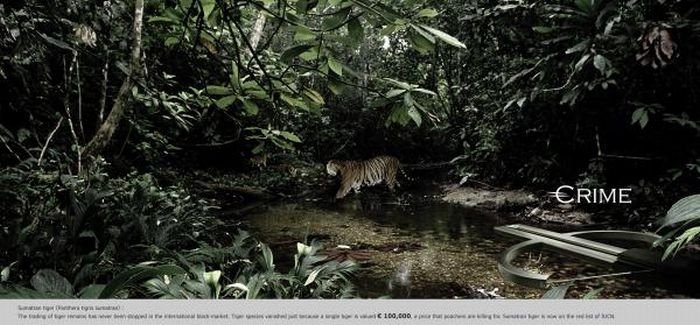|
|
PETA Animal Protection Campaign
|
Many of the campaigns have focused on large corporations. Fast food companies such as KFC, Wendy's, and Burger King have been targeted. In the animal-testing industry, PETA's consumer boycotts have focused on Avon, Benetton, Bristol-Myers-Squibb, Chesebrough-Pond's, Dow Chemical, General Motors, and others. Their modus operandi includes buying shares in target companies such as McDonald's and Kraft Foods in order to exert influence. The campaigns have delivered results for PETA. McDonald's and Wendy's introduced vegetarian options after PETA targeted them; Petco stopped selling some exotic pets; and Polo Ralph Lauren said it would no longer use fur. Avon, Estee Lauder, Benetton, and Tonka Toy Co. all stopped testing products on animals, the Pentagon stopped shooting pigs and goats in wounds tests, and a slaughterhouse in Texas was closed down.
As part of its anti-fur action, PETA members have infiltrated hundreds of fashion shows in the U.S, Europe, and once in China, throwing red paint on the catwalks, and unfurling banners. Celebrities and supermodels have posed naked for the group's "I'd Rather Go Naked than Wear Fur" campaign—some men, but mostly women—triggering criticism from feminist animal rights advocates . The New Yorker writes that PETA activists have crawled through the streets of Paris wearing leg-hold traps and thrown around money soaked in fake blood at the International Fur Fair. They regularly engage in pie-throwing—in January 2010, Canadian MP Gerry Byrne compared them to terrorists for throwing a tofu cream pie at Canada's fishery minister Gail Shea in protest at the seal hunt, a comment Newkirk called a silly chest-beating exercise. "The thing is, we make them gawk," she told Satya magazine, "maybe like a traffic accident that you have to look at."
Some campaigns have been particularly controversial. Newkirk was criticized in 2003 for sending a letter to PLO leader Yasser Arafat asking him to keep animals out of the conflict, after a donkey was blown up during an attack in Jerusalem. The group's 2003 "Holocaust on your Plate" exhibition—eight 60-square-foot (5.6 m2) panels juxtaposing images of Holocaust victims with animal carcasses and animals being transported to slaughter—was criticized by the Anti-Defamation League. In July 2010, the German Federal Constitutional Court ruled that PETA's campaign was not protected by free speech laws, and banned it within Germany as an offense against human dignity. In 2005, the NAACP complained about the "Are Animals the New Slaves?" exhibit, which showed images of African-American slaves, Native Americans, child laborers, and women, alongside chained elephants and slaughtered cows.
PETA's "It's still going on" campaign features newspaper ads comparing widely-publicized murder-cannibalization cases to the deaths of animals in slaughterhouses. The campaign has attracted significant media attention, controversy and generated angry responses from the victims' family members. Ads were released in 1991 describing the deaths of the victims of serial killer Jeffrey Dahmer, in 2002 describing the deaths of the victims of serial killer Robert William Pickton, and in 2008 describing the murder of Tim McLean. In several cases, newspapers have refused to run the ads.
|
|









